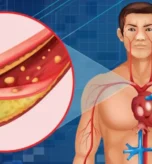
Over the past few years, chia seeds have been the star of the superfood show. While small in stature, these black or white seeds are deceptively dense in nutrients. From improved digestion to maintaining healthy hearts, science has proven that chia seeds are indeed a potent addition to the diet. If you’ve been wondering if chia seeds are good for you, the answer is a definite yes. Let’s dive into six science-supported health benefits of chia seeds and how you can incorporate them into your meals with ease.
1. Nutrient-Dense with Minimal Calories
Although tiny, chia seeds are among the most nutrient-packed foods out there. Only 28 grams (or two tablespoons) of chia seeds pack in:
- Fiber: 11 grams
- Protein: 4 grams
- Omega-3 fatty acids: 5 grams
- Calcium: 18% of the RDI
- Manganese: 30% of the RDI
- Magnesium: 30% of the RDI
- Phosphorus: 27% of the RDI
They also have zinc, potassium, and vitamins B1, B2, and B3. All of these nutrients make chia seeds nutritious and healthy for individuals who want to enhance the quality of their diet without taking in more calories.
Need wellness material that generates traffic and sales? Check out YelloMedi for top-quality health and lifestyle content services.
2. Rich in Antioxidants
Chia seeds contain a high level of antioxidants, which are substances that combat free radicals in the body. Free radicals result in oxidative stress, which may cause aging and diseases such as cancer. Antioxidants cancel out these radicals, thus safeguarding the cells of the body from damage.
Studies have discovered that the antioxidants present in chia seeds not only help maintain the sensitive fats contained in the seeds but also render anti-aging and anti-inflammatory benefits when eaten on a regular basis.
3. Great for Heart Health
Another important compound of omega-3 fatty acids is alpha-linolenic acid (ALA), found in chia seeds, which prevents inflammation and decreases the incidence of heart disease. Specific studies have shown that individuals consuming chia seed-rich diets experience lowered blood pressure, improved cholesterol levels, and reduced inflammation- all of which contribute to reducing heart disease.
In addition, the fiber content of chia seeds helps maintain heart health through lowering LDL (bad) cholesterol and promoting regularity of the bowels, which indirectly helps cardiovascular function.
Establish your brand’s wellness authority—collaborate with YelloMedi for SEO-optimized blog content and online strategies.
4. Facilitate Weight Loss and Satiety
One of the greatest difficulties in any weight loss program is managing hunger. Chia seeds can aid in this through their special property of being able to absorb water and swell up in the stomach, keeping you full for longer.
The protein and fiber in chia seeds also combine to reduce appetite and eliminate the need for unnecessary snacking. A number of studies have revealed that high-fiber diets are associated with lower obesity and metabolic disorder risk.
Though chia seeds aren’t a weight-loss miracle food, they are a powerful addition to a healthy diet and regular exercise.
5. Regulate Blood Sugar Levels
For diabetics or those attempting to level out their blood sugar levels, chia seeds can be a good food to eat. The soluble fiber in the chia seed retards the release of sugar in the bloodstream, preventing peaks and troughs in glucose levels.
Research has shown that adding chia seeds to meals can reduce post-meal blood sugar spikes. In one study, participants with type 2 diabetes who ate chia seeds daily showed improvements in blood pressure and inflammation, both of which are often linked to blood sugar control.
6. Support Digestive Health
Chia seeds are among the richest plant foods in dietary fiber. Two tablespoons contain almost half of the recommended daily consumption. This fiber maintains healthy digestion by ensuring regularity in bowel movements and the prevention of constipation.
Additionally, the gel-like substance formed when chia seeds absorb water acts as a prebiotic—fuel for the good bacteria in your gut. A healthy gut microbiome plays a critical role in nutrient absorption, immune function, and even mood regulation.
Ready to educate your audience with expert-written blogs? Explore YelloMedi’s services for custom content that converts.
How to Add Chia Seeds to Your Diet
Adding chia seeds to meals is very simple and involves no prior preparation. Here are some delicious and convenient ways to consume them:
- Chia Pudding: Combine chia seeds with plant-based or dairy milk, add fruit or sweetener, and refrigerate overnight for a rich, healthy breakfast.
- Smoothies: Add one tablespoon of chia seeds to your morning smoothie for added nutrition and thickness.
- Baking: Mix chia seeds into muffins, pancakes, or bread for added fiber and texture.
- Salads and Yogurt: Top salads or blend with yogurt for a crunchy texture.
- Hydration Drink: Mix chia seeds with water, lemon juice, and a dash of honey for a natural energy drink, enjoyed in Mexican cuisine as “chia fresca.”
Drive results with health and wellness storytelling—find content solutions at YelloMedi.
Final Thoughts
Chia seeds are more than a fad—they’re a scientifically-proven nutritional powerhouse. Whether you’re looking to lose weight, support heart health, or enhance digestion, these small seeds provide an impressive list of benefits with very little effort. Simply add a spoonful to your daily routine, and you can unlock the potential of one of nature’s most powerful superfoods.
For health brands and companies that want to connect with their audience, chia seeds present not only healthy benefits but also attractive content opportunities. Allow YelloMedi to tell that story in a manner that educates, motivates, and converts.







